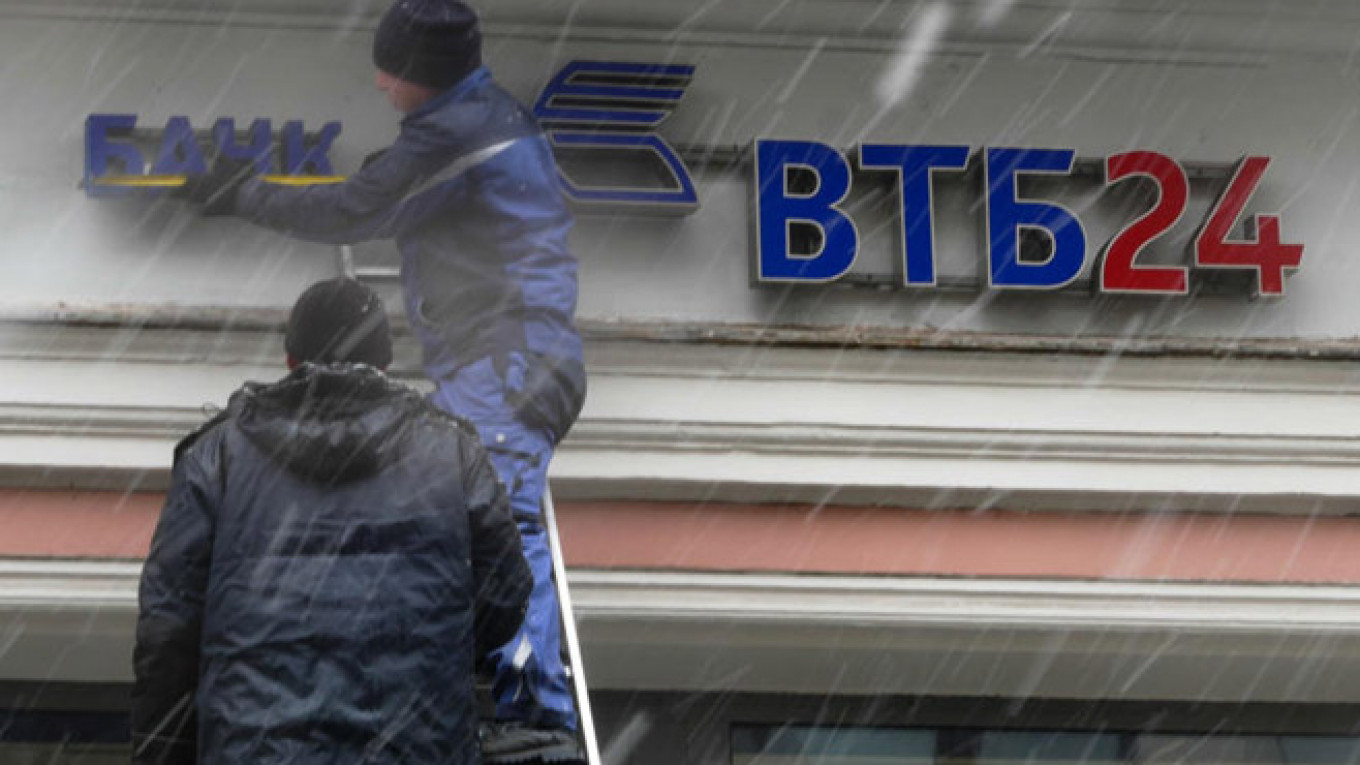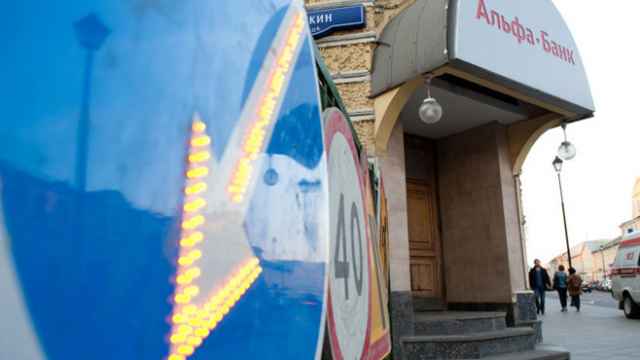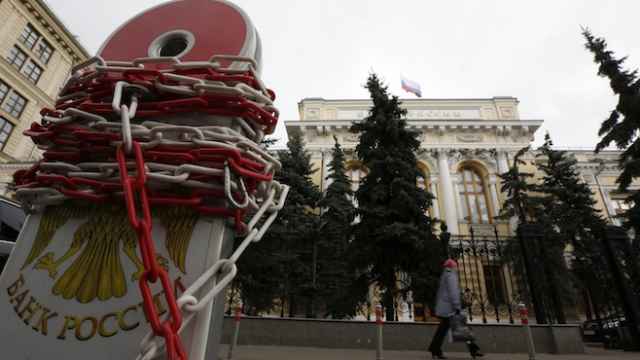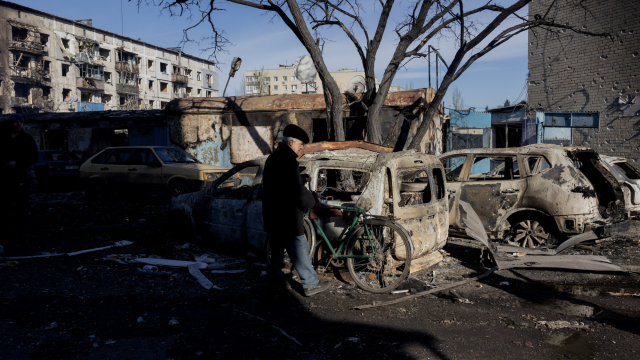Russia's second-largest bank VTB made a loss of $370 million in the first quarter and reined in lending as high Central Bank interest rates choked the economy, posing risks for firms dependent on the bank for funds.
Russia's economy, battered by a low oil price and Western sanctions over the Kremlin's role in the Ukraine conflict, needs its banks to keep lending to limit the economic downturn, but VTB's results show they will struggle to do so.
VTB, like other large Russian state banks, is under Western sanctions that restrict its access to international capital, making it more reliant on domestic funding when the Central Bank was pushing up the cost of borrowing at home.
The bank's chief financial officer said more losses were in store unless the Central Bank continued to cut rates.
"The current level of the key rate, 12.5 percent, is unfortunately insufficient for us to stop making losses," Herbert Moos said.
The Central Bank has slashed its key rate by 450 basis points in 2015, which some analysts attribute to fears for banks and an economy forecast to contract by as much as 4 percent this year.
Nevertheless credit conditions remain tight.
"Conditions affecting households and small and medium-sized enterprises are getting worse despite the cut in interest rates," said Chris Weafer, senior partner at Macro Advisory consultancy in Moscow.
VTB narrowly avoided a full-year loss in 2014 but has now suffered losses for two consecutive quarters.
Its net interest income slumped almost 50 percent in the first quarter, while its gross loan book shrank 3 percent, a far cry from previous years when the bank had seen double-digit lending growth.
VTB has played a major role in funneling capital to the resource exporters which dominate Russia's economy, such as miner Norilsk Nickel and gas giant Gazprom.
Lending flows drying up could have a knock-on effect on their investment plans, even though the state could offer support to such companies directly and some of them have seen their profits boosted in recent months by the weaker ruble.
Trading Boost
VTB would have posted an even sharper loss in the first quarter were it not for gains on foreign-currency operations and its securities portfolio totaling over 30 billion rubles.
"The fixed income market was on a recovery streak in the last two months of the quarter and forex market volatility remains high, so VTB capitalized on that," said Andrei Klapko, an analyst at Gazprombank.
Klapko added that he expected VTB to report a loss of 48 billion rubles ($972 million) for 2015 as a whole.
Weafer of Macro Advisory, meanwhile, said VTB's plight reflected the fact the banking sector was bearing the brunt of an economic crisis accelerated by sanctions over Ukraine.
"This year we will see a large reduction in the number of licensed banks as many simply will not be able to satisfy Central Bank risk requirements or access new capital," he said.
VTB received 214 billion rubles in state support last year to boost its capital and 100 billion from the National Wealth Fund to finance investment projects.
CFO Moos said it was too early to talk about an exact time frame for attracting additional capital from the government but said the bank was working on the issue.
He added the bank had cut several thousand staff so far this year, including in Ukraine, London and Austria, as part of a broader cost-cutting drive.
VTB shares were flat at 2:20 p.m., versus a 1.2 percent drop in the benchmark MICEX index.
A Message from The Moscow Times:
Dear readers,
We are facing unprecedented challenges. Russia's Prosecutor General's Office has designated The Moscow Times as an "undesirable" organization, criminalizing our work and putting our staff at risk of prosecution. This follows our earlier unjust labeling as a "foreign agent."
These actions are direct attempts to silence independent journalism in Russia. The authorities claim our work "discredits the decisions of the Russian leadership." We see things differently: we strive to provide accurate, unbiased reporting on Russia.
We, the journalists of The Moscow Times, refuse to be silenced. But to continue our work, we need your help.
Your support, no matter how small, makes a world of difference. If you can, please support us monthly starting from just $2. It's quick to set up, and every contribution makes a significant impact.
By supporting The Moscow Times, you're defending open, independent journalism in the face of repression. Thank you for standing with us.
Remind me later.






